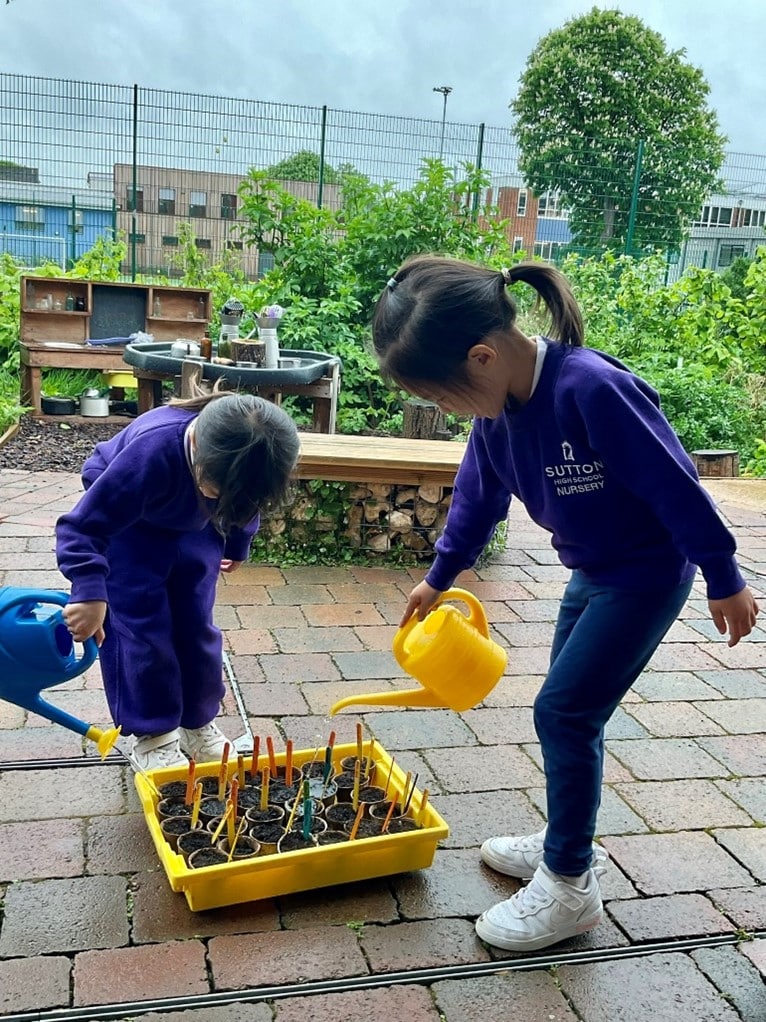
It is a pleasure to visit any of the classes in Prep School – each one is a favourite in a different way. Whether it is talking to Year 6 about their next BIG step into Year 7 or to Year 4 about their first residential trip, it is a joy. It is a known fact – if I am missing from my office, I can quite often be found working (or perhaps, more importantly, talking and listening to EYFS children) over in Fernwood. The open space, the light, the muted colours work for us as adults too, it helps our calmness and ability to focus on the task at hand. It is also the joy of Nursery and Reception, the squeals of excitement as they learn. The progress of these year groups is phenomenal and when you analyse the following information from Royal Foundation Centre for Early Childhood, you can see why we are building foundations for life.
Research – Centre for Early Childhood
A child’s physical transformation in the early years is plain to see and the ‘milestones’ that are most often recognised and measured relate to physical development: the first smile; the first steps; the first words. What we also know now from the science is the extraordinary extent to which the brain changes during pregnancy and in the first five years. This has implications for our development that go far beyond our physical abilities.
The developing brain: foundational connections
Our brain-building starts in utero and we are all born with billions of neurons — specialised brain cells designed to transmit information to other nerve cells around the body. Rapid brain growth means that by age two our brains are approximately 80% of adult weight, reaching 90% of adult size by age five. However, it is the trillions of connections — our synapses — between the nerve cells, formed most rapidly in early childhood, that are key in making our brains and bodies function. Young children form more than a million synapses per second in the first few years. These critical connections are shaped by our earliest relationships, environments and experiences, and it is the arrangement and strength of these initial connections that allow the development of increasingly intricate and inter-related systems in the brain.
Scientists at The Center on the Developing Child at Harvard University talk about the unique plasticity of the brain in the earliest years: not only is it developing quickly, but it is also dependent on, and extraordinarily receptive to, its environment. The process of brain building starts with overproduction of the cellular material required to make synapses; our bodies naturally generate more of this material than is required. Over time, connections are made (or not) based on the experiences we have (or do not have).
Repeated experiences create stronger and faster connections, while a lack of certain kinds of experience during critical periods of development can inhibit the development of connections in specific areas of the brain. For example, if the eyes do not receive visual input during the critical period for optical development, these brain areas may never function properly. Lack of activation or use can leave connections weak, and connections that are not used or strengthened die off. Although this pruning process is a natural part of brain development, an absence of stable, caring relationships and enriching experiences can weaken the neural networks that underlie key thinking skills and emotional capabilities.
Early, positive experiences strengthen neural connections. The critical emotional bond between a baby and its primary caregiver — often referred to as ‘attachment’ — is dependent on early, reciprocal interaction. Over time the sequential building of connections, structure upon structure, means that the nature and strength of each ‘layer’ of connections affects subsequent development.
Connections that underpin more basic processes, such as our senses and simple emotions, form first. Over time, with the right experiences, more complex circuits emerge, like those for speech and motor functions. Circuits required for reasoning and behavioural control continue to develop throughout childhood and into early adulthood. All these circuits are built on those formed in the earliest years, and so there is an opportunity to shape later outcomes by building solid foundations first. A good start makes good outcomes both more likely and easier to achieve.
Big Change Starts Small Report – Centre for Early Childhood
This research is powerful and yes, we are extremely fortunate at Sutton High School, to have a learning environment both inside and outside of the classroom that creates the opportunities for experiences that interest, intrigue and captivate our youngest learners. Whether it is uncovering woodlice in Nower Wood or designing (through play) a water system which ensures the plastic ducks travel down their riverbank. They are constantly (it feels almost by the second, by the minute) developing and strengthening their synapses. Vocabulary is enriched through stories and through relationships from office staff, to caretakers, to teacher, to lunchtime supervisor….no one travels past a Nursery or Reception room without a chat! They want to know what we are doing and we want to know what they are doing. Our aim is to provide this good start in the early years, as this strong foundation will help to ensure that our pupils will ‘do better because they feel better’.
